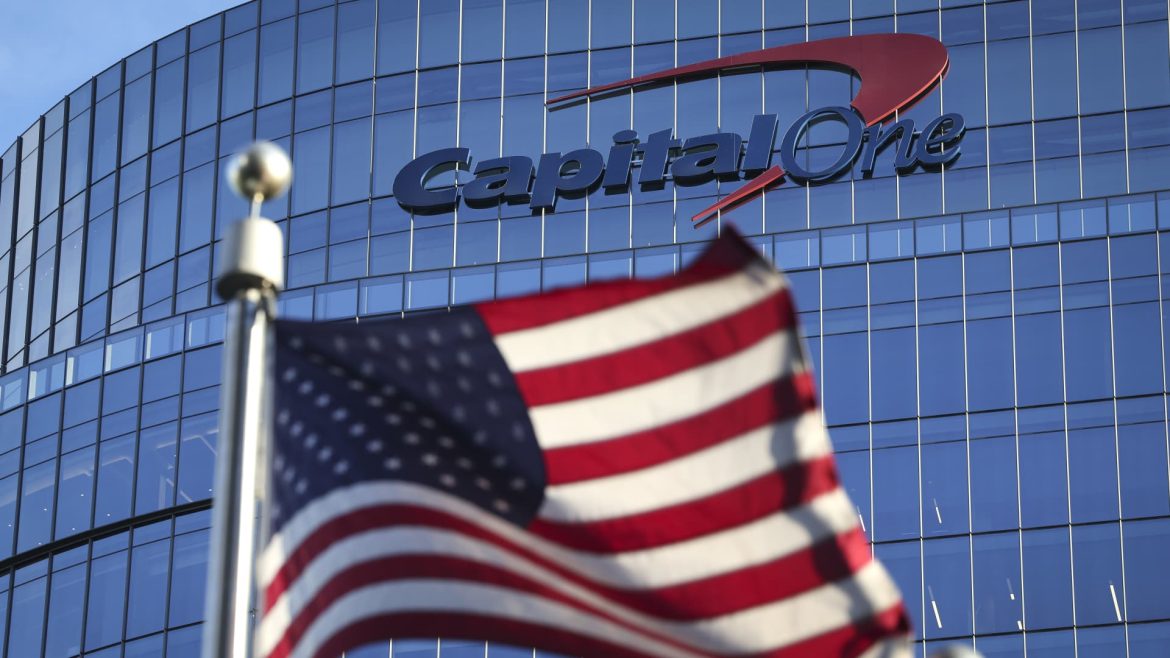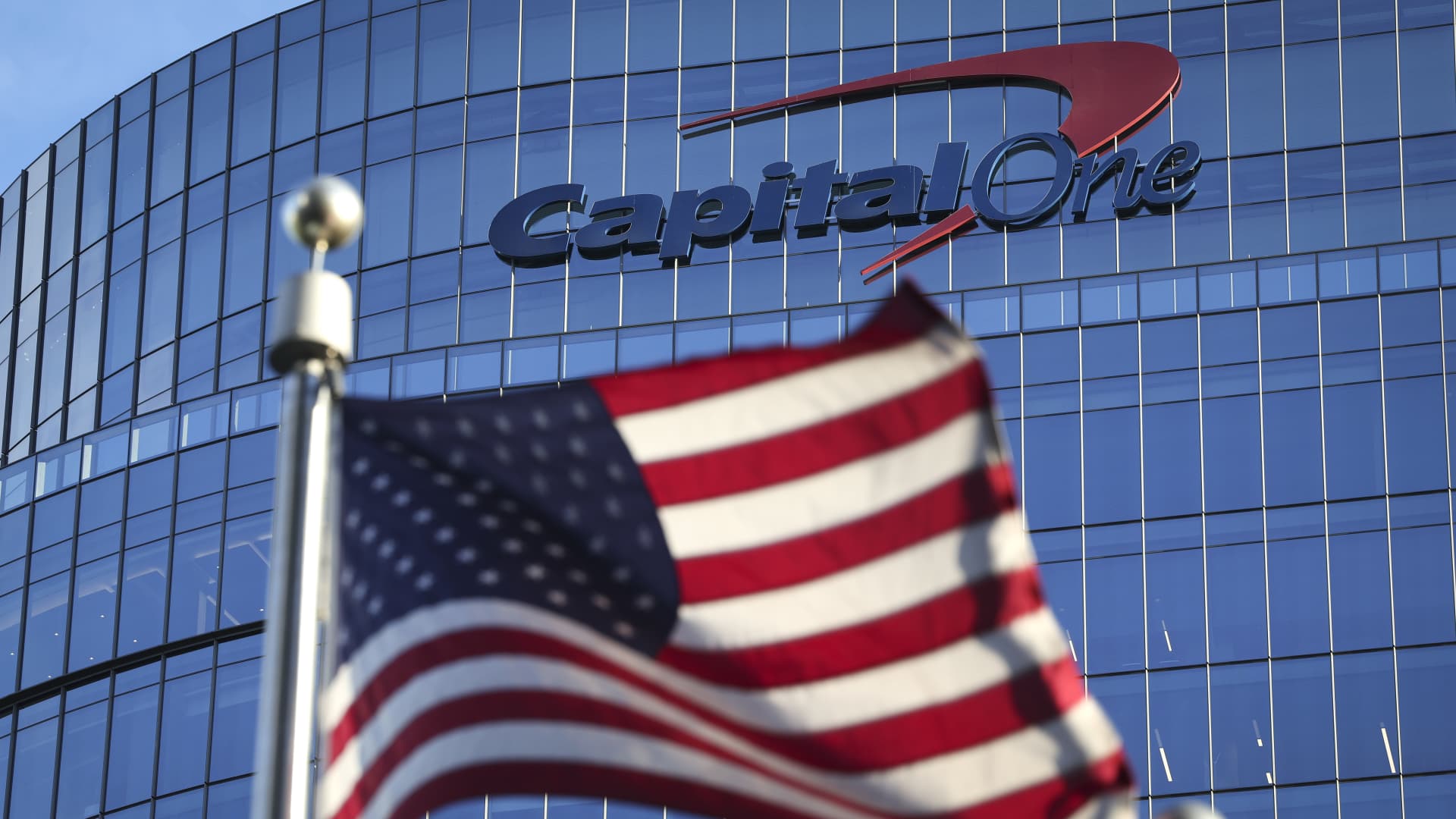The recent media coverage surrounding Capital One and the Consumer Financial Protection Bureau (CFPB) reveals a complex interplay of regulatory enforcement, political influence, and corporate conduct that warrants a comprehensive analysis. This narrative is marked by significant legal actions, policy shifts, and high-profile disputes, which collectively reflect broader themes of consumer protection, governmental regulation, and political motives shaping financial oversight.
The Shape of Enforcement and Deregulation: A Turbulent Landscape
The core of the discussion revolves around the lawsuit filed by the CFPB against Capital One prior to the change in presidential administration, specifically during the last days of the Trump administration. The allegations centered on the bank allegedly misleading consumers about its high-interest savings accounts, resulting in an estimated $2 billion in lost interest payments. This action, taken just before President Trump’s inauguration, initially signaled a serious effort by a federal watchdog to hold a major financial institution accountable.
However, subsequent developments reveal a swift reversal, as the CFPB, under the new administration, chose to drop the lawsuit. This decision drew widespread attention and critique, illustrating a significant shift in regulatory philosophy. The abandonment of the case appears aligned with the Trump administration’s broader approach of scaling back federal oversight, often characterized as a move towards deregulation.
The Trump Administration’s Approach to Consumer Protection
With efforts to weaken or obstruct certain regulatory agencies, particularly the CFPB, the Trump administration signaled a different stance towards financial oversight. The coverage indicates that the CFPB dropped multiple cases, not only against Capital One but also against Rocket Homes and others, casting doubt on the vigor of federal enforcement during this period. The reasoning behind these decisions often involved claims of legal overreach or allegations that the agencies were pursuing politically motivated or exaggerated claims.
The narrative underscores that the Trump administration intended to de-emphasize aggressive enforcement, considering some cases as “unwarranted” or based on questionable regulatory authority. The videos and articles reveal that such reversals have led to bipartisan concerns about consumer rights, with some state attorneys general, notably New York’s Attorney General, attempting to fill the enforcement vacuum.
Political and Corporate Conflicts: The Trump Organization’s Legal Battles
Parallel to the federal regulatory story is the Trump Organization’s legal conflicts, specifically lawsuits against Capital One over account closures following the Jan. 6 Capitol riot. These suits claim that Capital One “debanked” the Trump family business due to its political and social motives, a narrative emphasizing the role of political beliefs in banking decisions.
The Trump Organization’s lawsuits portray a different facet of the financial network—one where corporate and political interests intersect. These legal actions are distinct from regulatory enforcement but are equally vital in understanding the broader political economy surrounding Capital One’s conduct and its relations with politically influential clients.
Particularly noteworthy is the assertion by the Trump companies that the bank terminated their accounts “over ‘woke’ beliefs,” a term heavily loaded in contemporary political debates around social justice and diversity. This framing aligns with the Trump administration’s narrative of corporate “wokeness” as a political weapon, reflecting broader societal tensions about corporate social responsibility and political bias.
The Broader Context of Regulatory and Political Tensions
The repeated mention of the CFPB’s case withdrawals illustrates more than a regulatory policy shift; it emphasizes the significant influence of the political environment on institutional actions. During the Biden administration, efforts have been made to reassert stricter consumer protections, but the legacy of deregulation continues to influence the regulatory landscape.
The changes also reflect a broader debate about the balance of power between federal agencies and private companies. The previous administration’s approach favored deregulation and minimal intervention, whereas current discussions indicate a potential shift towards stronger oversight and accountability, though this remains an evolving process.
The Impact of Political Bias and Partisan Polarization
The narrative around Capital One’s account closures after political events like Jan. 6 demonstrates how banking relationships are influenced by political considerations and social movements. The Trump Organization’s claims of “de-banking” over political beliefs symbolize a broader concern about the role of financial institutions in social and political disputes.
This intersection underscores how regulatory actions, corporate decisions, and political narratives intertwine, complicating the landscape for consumers, corporations, and regulators alike. The accusations and lawsuits highlight that financial institutions are not merely neutral entities but actors influenced by social tensions and political pressures.
Consumer and Regulatory Outcomes: An Uncertain Future
The decision of the CFPB to drop the lawsuit against Capital One indicates a strategic retreat that raises concerns about consumer protection and the enforcement of financial laws. Critics argue this signals a handoff to state authorities, such as New York’s attorney general, to oversee and enforce consumer rights amid federal disengagement.
The potential consequences include a fragmented enforcement landscape, where individual states assume greater responsibility but may lack the resources to handle widespread issues effectively. The systematic rollback of federal oversight could leave consumers vulnerable to deceptive practices, as evidenced by the original allegations of cheating customers out of billions in interest payments.
The Role of State Attorneys General in Consumer Protection
With the CFPB’s diminished role, state attorneys general have become more prominent in safeguarding consumer interests. The New York attorney general’s lawsuit against Capital One exemplifies this trend, aiming to fill the regulatory gap left by federal withdrawals. However, the effectiveness of state-level enforcement depends heavily on each jurisdiction’s resources and priorities, leading to inconsistent safeguards for consumers nationwide.
The Media and Public Discourse: Shaping Perceptions
Media outlets have played a crucial role in framing these issues based on ideological leanings. Articles from AP, NY Times, Reuters, CNN, and others provide varying perspectives, often influenced by the political context. For example, coverage about the CFPB’s dropped cases is cast either as a failure of federal oversight or as a necessary correction against regulatory overreach.
The narratives around the Trump Organization’s lawsuits tend to highlight political bias, social tensions, and corporate misconduct, further intensifying societal debates. Such media portrayals influence public perceptions of fairness, accountability, and the role of government, shaping policy debates and future regulatory reforms.
Conclusion: Navigating the Crossroads of Regulation and Politics
The case of Capital One exemplifies the complex dynamics at play in the modern financial and regulatory ecosystem. It reveals a period marked by significant political influence over regulatory agencies, lawsuits rooted in social and political conflicts, and ongoing debates about consumer rights and corporate accountability.
The regulatory decisions, particularly the withdrawals of lawsuits against Capital One, underscore how political shifts can drastically alter the enforcement landscape. These decisions may provide immediate relief to some institutions but pose long-term risks for consumer protection, transparency, and accountability.
Moving forward, the landscape remains uncertain. Federal agencies like the CFPB may seek to reassert their authority under new leadership, while at the same time, state-level agencies like New York’s attorney general are poised to expand their oversight roles. The political environment will undoubtedly continue to influence the trajectory of financial regulation, corporate conduct, and consumer rights.
Resilience amid Uncertainty
The overarching lesson from this evolving saga is the importance of vigilance—by consumers, regulators, and policymakers alike. As regulatory agencies navigate political pressures, and corporations engage in strategic battles over reputation and influence, the need for transparent, fair, and consistent enforcement becomes more vital than ever. Ultimately, safeguarding consumers and maintaining trust in financial institutions hinge on a balanced approach that resists politicization and prioritizes accountability, fairness, and integrity in all facets of financial regulation and corporate conduct.


